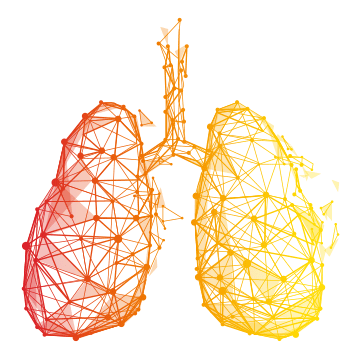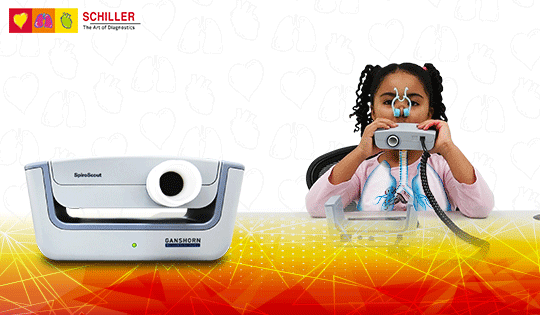Having a healthy-respiratory system..
The respiratory system is in charge of extracting oxygen, a gas necessary for our cells to live and develop, from the air we breathe.
The respiratory system also allows to eliminate the carbon dioxide that the cells produce after using oxygen.
Having a healthy respiratory system is essential for health.
The American Lung Association indicates some tips to protect your lungs, including:

A Healthy Diet

Practice Physical Exercise


Practice Physical Exercise

Checkup with your doctor
During this pandemic the virus may attack your lung tissue and cause a mild to severe pulmonary disease. While you can recover from the acute phase of the disease there have been reports of long term pulmonary damage that need for continuous vigilance and, in some cases, medical treatment.
What is a Spirometry?
Spirometry is a test to see how well your lungs are working. “Spirometry is invaluable as a screening test of general respiratory health in the same way that blood pressure provides important information about general cardiovascular health”
American Thoracic Society (ATS)
Is a Spirometry a risky test?
No. It’s a noninvasive, safe and painless test that can be performed in your doctor’s office. You can go back to your normal activities afterward. Click for a quick video demonstration.
Why do I need a Spirometry test?
Your doctor may recommend spirometry to:
- To explain symptoms and make a diagnoses
- Identify a disease in your lungs
- Review the severity of your existing lung disease
- Determine if the medications you are taking are helping you
- To assess pre-operative risk
- If you were exposed to injurious agents, to evaluate the extent of damage
What is Spirometry measures?
It measures three things:
- How much air you can breathe in (inhale)
- How much air you can breathe out (exhale)
- How fast you can exhale the air from your lungs
Your measurements are then compared to a healthy population
with your same characteristics (Age, Height, Weight, Gender, and Ethnicity), and the result will tell you the state of your basic pulmonary function.
Performing a Spirometry...

Other Questions...
Can I have any contagious risk during Spirometry test?
No, the mouthpiece is disposable and the surface is easy to clean.
What benefits I have asking for a Spirometry?
Lung function tests are important, whether you’ve already been diagnosed with a breathing problem or you think you may have one. They can be the first step toward breathing easier.
Can spirometry diagnose if I have COVID-19?
No, the CoVID Diagnoses can only be done by the specific testing. While in the acute phase of the disease spirometry is not indicated. After you have recovered from the acute phase, spirometry will:
- Evaluate the presence of lung damage
- Evaluate the extent of the lung damage
- Evaluate the effectiveness of the treatment you are given and, if needed, adjust dosage or change medication
- Follow up on your recovery
Ask for a Spirometry to your Primary Care Physician if:
- Have breathing problems (noticed that you’re short of breath)
- Asthma, COPD, or a recovered COVID-19 patient
- Smoke for a long time
- If you was exposed to injurious agents




